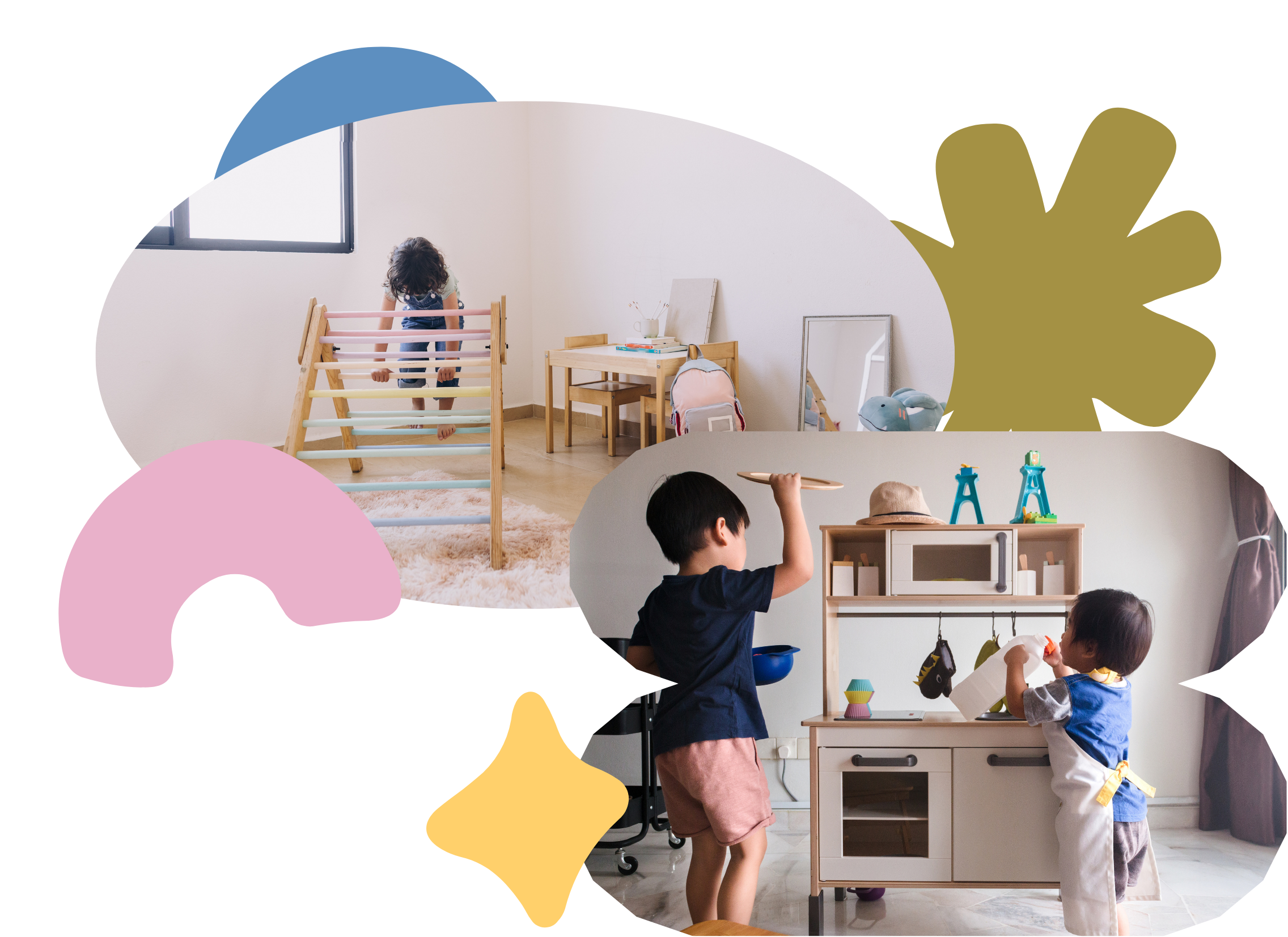Therapy
I offer both in-person and virtual therapy sessions at the Institute for Girls’ Development in Pasadena, CA to provide flexible, accessible support for children, families, and individuals. Whether you prefer the comfort of online sessions or the connection of in-person therapy, I tailor each experience to best meet your needs.
THerapy Services
Individual therapy
I provide individual therapy for children, parents, and neurodivergent adults, both in person and through Telehealth, to ensure support is accessible and tailored to your needs. Keep reading to learn more about how individual therapy can help.
Children
Children communicate through behavior, play, and relationships, which is why therapy for young clients is often play-based, interactive, and developmentally appropriate. Through individual sessions, I help children:
Develop emotional regulation skills to manage anxiety, frustration, or big feelings
Process life changes or challenges such as family transitions, medical experiences, or social struggles
Strengthen communication and coping skills to navigate friendships, school, and home life
Address behavioral concerns by understanding the emotions and needs driving them
Parents play a vital role in a child’s progress, so I provide regular parent sessions every 4-6 sessions to discuss strategies and insights that can support therapy goals at home.
Parents
Parenting can feel overwhelming, and sometimes, caregivers need their own space to process emotions, reduce stress, and gain clarity in how to best support their children. Individual therapy for parents provides:
Emotional support for the challenges of parenting
Guidance on attachment and connection to strengthen parent-child relationships
Strategies for managing parental stress and burnout
Help navigating neurodivergence, developmental concerns, or behavioral challenges
Therapy isn’t just about supporting children—it’s also about supporting the people who care for them.
NeuroDivergent Adults
Many neurodivergent adults, especially those diagnosed later in life, seek therapy to better understand themselves, navigate relationships, and manage sensory, executive functioning, or emotional challenges. My approach is affirming, strengths-based, and adapted to each individual’s needs. Therapy may focus on:
Processing late-diagnosed or self-identified neurodivergence
Managing sensory sensitivities, burnout, and overwhelm
Navigating relationships, work, and life transitions
Building emotional regulation and self-advocacy skills
Sessions are adapted to accommodate different communication styles, sensory needs, and processing preferences, ensuring that therapy feels safe, affirming, and accessible.
Group therapy
I offer group therapy at the Institute for Girls’ Development, creating supportive spaces for parents, teens, and young adults to connect, learn, and grow together. Keep reading to explore my group therapy offerings and find the right fit for you or your child.
Groups for parents
Parent Group for Elementary-Aged Children
Parenting school-age children comes with its own set of challenges, from emotional regulation to social development. This group provides support, strategies, and a space to connect with other parents navigating similar experiences.For more information, please view the IFGD website here
Foundations First: Parent Series for Children Newly Diagnosed with Autism
Receiving an autism diagnosis for your child can bring many emotions and questions. This group helps parents understand neurodivergence, build supportive routines, and strengthen their connection with their child through a developmental and relationship-based approach.For more information, please view the IFGD website here
Groups for Teens and young adults
Launching Connections: Autistic Young Adult Group
Transitioning into adulthood can feel overwhelming, especially for autistic individuals navigating work, relationships, and independent living. This group provides a neurodivergent-affirming space to build social connections, develop executive functioning skills, and share experiences in a supportive environment.For more information, please view the IFGD website here
Teen Connections: Autistic Teen Group
Designed for autistic teens looking to build friendships, practice social communication, and strengthen emotional awareness, this group offers a safe and structured space to explore identity and connection with others who understand their experiences.For more information, please view the IFGD website here
Family therapy
I offer family and dyadic therapy in person at the Institute for Girls’ Development, providing a space for parents and children to strengthen their relationships, improve communication, and navigate challenges together. Keep reading to learn more about how family therapy can support your family’s growth and connection.
Dyadic therapy
Dyadic therapy is a relationship-based approach that involves both the parent and child in sessions to strengthen attachment, emotional security, and co-regulation. Rooted in Child-Parent Psychotherapy (CPP) and other developmental frameworks, this therapy helps families heal from stress, trauma, or relational disruptions by rebuilding trust and creating a safe, connected space for growth.
This approach is especially helpful for:
Parents and young children (0-5) working on attachment, bonding, and emotional regulation
Families navigating early childhood behavioral concerns, such as tantrums, difficulty with transitions, or anxiety about separation
Parents of neurodivergent children looking for support in understanding their child’s unique needs and fostering deeper connection
Families who have experienced stress, trauma, medical challenges, or disruptions in early caregiving relationships
Dyadic therapy recognizes that a child’s emotional well-being is deeply connected to their relationships with caregivers. By working together in therapy, parents and children strengthen their relationship, build emotional resilience, and create a foundation for long-term connection and healing.
For more information on CPP, please visit their website here
Family Therapy for School-Age Children & Teens
As children grow, family relationships evolve, and new challenges may arise. Family therapy can help parents and children:
Navigate big transitions (such as divorce, blended families, school changes, or sibling relationships)
Improve communication by helping family members feel heard and understood
Manage behavioral concerns by addressing the emotions and needs driving them
Strengthen family connection through shared understanding and problem-solving
Family therapy provides a safe, supportive space to work through challenges together—helping families move toward deeper connection and emotional well-being.



